PENGUIN  CLASSICS
CLASSICS
THE DHAMMAPADA
tradition, and is involved in interfaith work in Manchester. Her previous publications include The Circle of Stars: An Introduction to Indian Astrology (Element Books, 1992). She also translated the Upaniads for Penguin Classics.
The Dhammapada
Translated and edited with an introduction by
VALERIE J. ROEBUCK
PENGUIN BOOKS
PENGUIN CLASSICS
Published by the Penguin Group
Penguin Books Ltd, 80 Strand, London WC2R 0RL , England
Penguin Group (USA) Inc., 375 Hudson Street, New York, New York 10014, USA
Penguin Group (Canada), 90 Eglinton Avenue East, Suite 700, Toronto, Ontario, Canada M4P 2Y3 (a division of Pearson Penguin Canada Inc.)
Penguin Ireland, 25 St Stephens Green, Dublin 2, Ireland (a division of Penguin Books Ltd)
Penguin Group (Australia), 250 Camberwell Road, Camberwell, Victoria 3124, Australia
(a division of Pearson Australia Group Pty Ltd)
Penguin Books India Pvt Ltd, 11 Community Centre, Panchsheel Park, New Delhi 110 017, India
Penguin Group (NZ), 67 Apollo Drive, Rosedale, North Shore 0632, New Zealand
(a division of Pearson New Zealand Ltd)
Penguin Books (South Africa) (Pty) Ltd, 24 Sturdee Avenue, Rosebank, Johannesburg 2196, South Africa
Penguin Books Ltd, Registered Offices: 80 Strand, London WC2R 0RL , England
www.penguin.com
This translation first published in Penguin Classics 2010
Translation and editorial material copyright Valerie J. Roebuck, 2010
All rights reserved
The moral right of the translator and editor has been asserted
Except in the United States of America, this book is sold subject to the condition that it shall not, by way of trade or otherwise, be lent, re-sold, hired out, or otherwise circulated without the publishers prior consent in any form of binding or cover other than that in which it is published and without a similar condition including this condition being imposed on the subsequent purchaser
ISBN: 978-0-14-196355-6
Contents
THE DHAMMAPADA
19. The Just
Acknowledgements
I cannot even attempt to list the names of all the people who have helped me in the course of this work. First, there are those who inspired or encouraged me to take the task on, notably F. R. Allchin, Steve Farmer and J. R. Hinnells; and L. S. Cousins, without whose generous help I would hardly have dared to venture into the world of Pali and early Buddhism, after a previous existence specializing in Sanskrit. Les Callow should also be mentioned here, since he was the first person to suggest to me the idea of a Dhammapada translation, many years before. Then there are those who encouraged me when doubt set in especially when I was finding it hard to discover a voice in English for the Pali of the Dhammapada among them Grevel Lindop and Tony Ellis, who read an early draft of the text and offered their criticisms of it as poetry in English.
It was very important for me to be able to discuss the work from the point of view of Buddhist teaching and practice, and I have been most grateful for discussions with friends who are meditators and sincere searchers within the Buddhist tradition, as well as, in some cases, scholars themselves among them, Francis Beresford, Costel Harnasz, Usha McNab, Anne Schilizzi, Charles and Sarah Shaw, and many others who have taken part in study and practice groups to explore the Dhammapada.
Research into the Dhammapada and its related literature has taken me far beyond the realms of the Indian languages, into those of China and Tibet, which I regret I have never studied. I therefore owe my thanks to Max Deeg, Jungnok Park and Roland Steiner, scholars of these and other languages of Buddhism, who have been very generous in sharing their knowledge. The help of Kathy Lazenbatt of the Royal Asiatic Society has been indispensable in seeking out earlier translations of the Dhammapada into Western languages.
There are others, too, who have helped me via the various Indology lists on the internet, patiently answering my queries and helping me to find the books and articles I needed. Even a quick look at my email correspondence on Dhammapada topics reveals discussions with numerous scholars, including Jaymin Acharya, Stefan Baums, Peter Friedlander, Chris Haskett, Axel Michaels, Manish Modi, Walter Slaje, John D. Smith, Allen Thrasher, H. J. H. Tieken and Peter Wyzlic. For those whose names have been omitted, I want to assure them that their help is not forgotten. Needless to say, the use I have made of all this information, and the opinions expressed in the work, are entirely my own responsibility.
Much important research on the Dhammapada and its related literature is available only in German, another language that is regrettably unfamiliar to me. I therefore wish to express my heartfelt thanks to my German translator, Isabel Glasow, who has coped magnificently with densely written academic articles containing copious amounts of Sanskrit and Pali.
And thanks, as always, to my husband, Peter, for his unfailing love and support.
This work is dedicated to the memory of David Melling (19432004), philosopher, colleague and friend.
Valerie J. Roebuck
Manchester, January 2010
Pronunciation Guide
The following are the closest approximations in Received Standard English for the words from South Asian languages that are found in this book. The guide is designed primarily for Pali, but is also intended to provide some help with the Sanskrit (including Buddhist Hybrid Sanskrit) and Gndhr words that occur in the Introduction and Appendices.
VOWELS
a as in c u p, not as in c a p.
as in c a lm.
i as in p i ck.
as in p ea k.
u as in t oo k.
as in t oo l.
(Sanskrit only) is vocalic rr as a vowel. Originally it was probably pronounced as a trilled sound, like an r continued. Today, however, it is generally pronounced as a short ri sound, so ddhi sounds much like riddhi, and i, sage, is often Anglicized as rishi.
e as in b a ke.
ai (Sanskrit only) as in b i ke.
o as in b oa t.
au (Sanskrit only) as in b ou t.
a, i, u, are short vowels; , , , e, ai, o, au are long. In Pali only, e and o are shortened before double consonants, so that the e in mett and the o in gotta are pronounced short, though the resultant syllables are still long for stress purposes. (The length of syllables is important not only for knowing where to place the stress on words, but also for the metres used in poetry.)
CONSONANTS
k, g, c, j, , , t, d, p, b are unaspirated sounds: practically no breath escapes when they are pronounced, so they sound softer than their English equivalents. kh, gh, ch, jh, h, h, th, dh, ph, bh are aspirated: there is a noticeable escape of air, like an h, when they are pronounced. kh, gh etc. are written with single characters in the Indian scripts, and count as single sounds in pronunciation. Double consonants, such as kka, kkha etc., are fully pronounced, as in Italian.
kh as in blo ckh ead, not as in lo ch .
gh as in e ggh ead.
c as in ch at, not as in c at (which would be spelled with a k in this system).
ch as in ch at, but with a more marked escape of breath.
j as in lo dg e, not as in mira g e.
jh as in bri dgeh ead.
ph
Next page
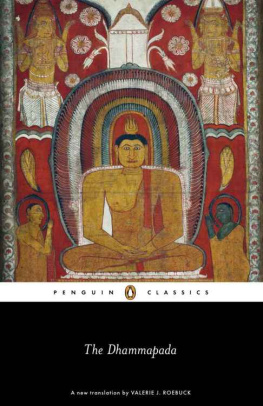

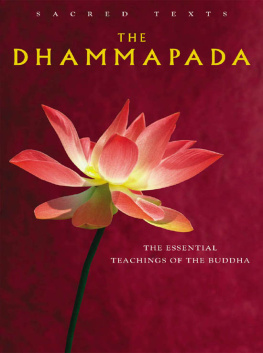
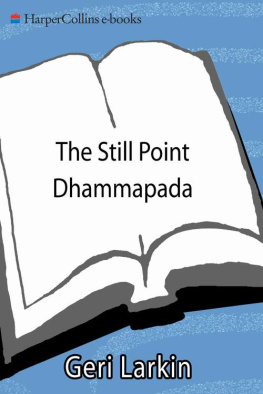
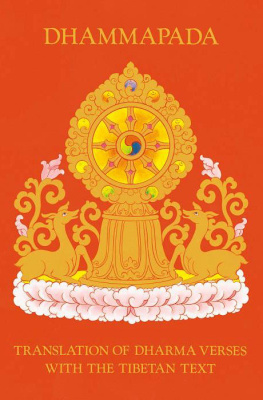
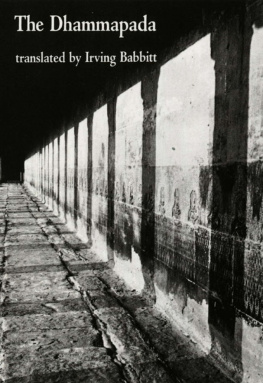
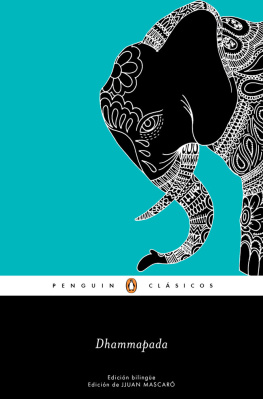
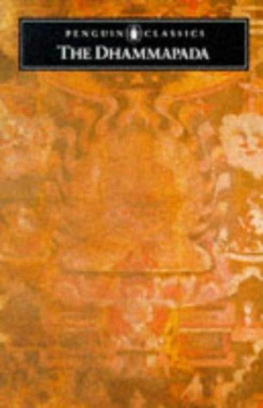
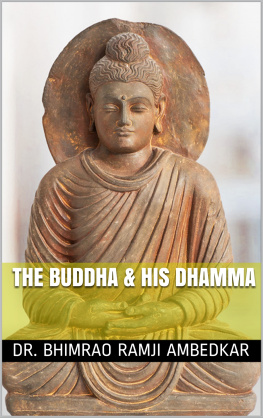
![Dge-’dun-chos-’phel - Dhammapada : [translation of Dharma verses with the Tibetan text]](/uploads/posts/book/115898/thumbs/dge-dun-chos-phel-dhammapada-translation.jpg)
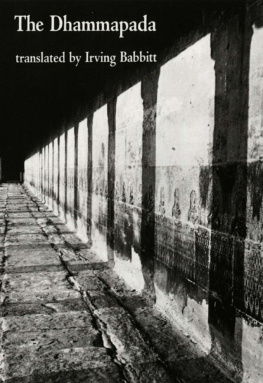
 CLASSICS
CLASSICS